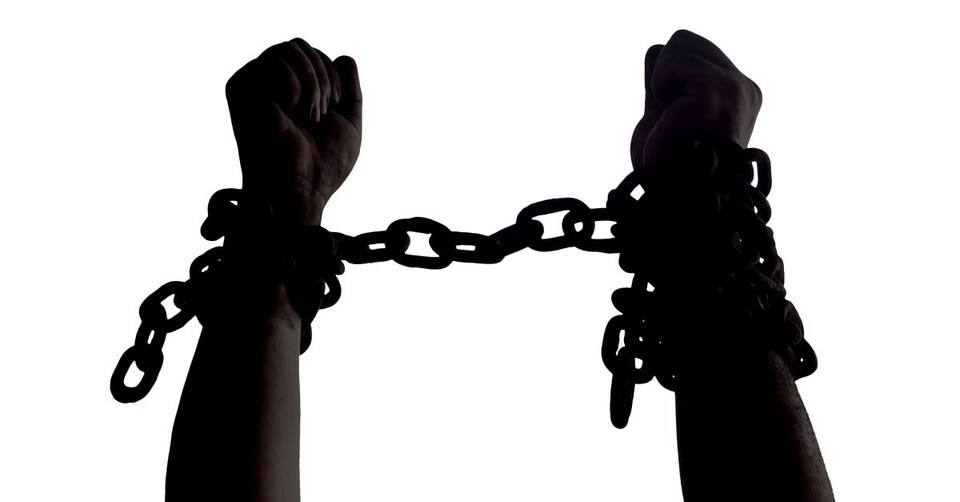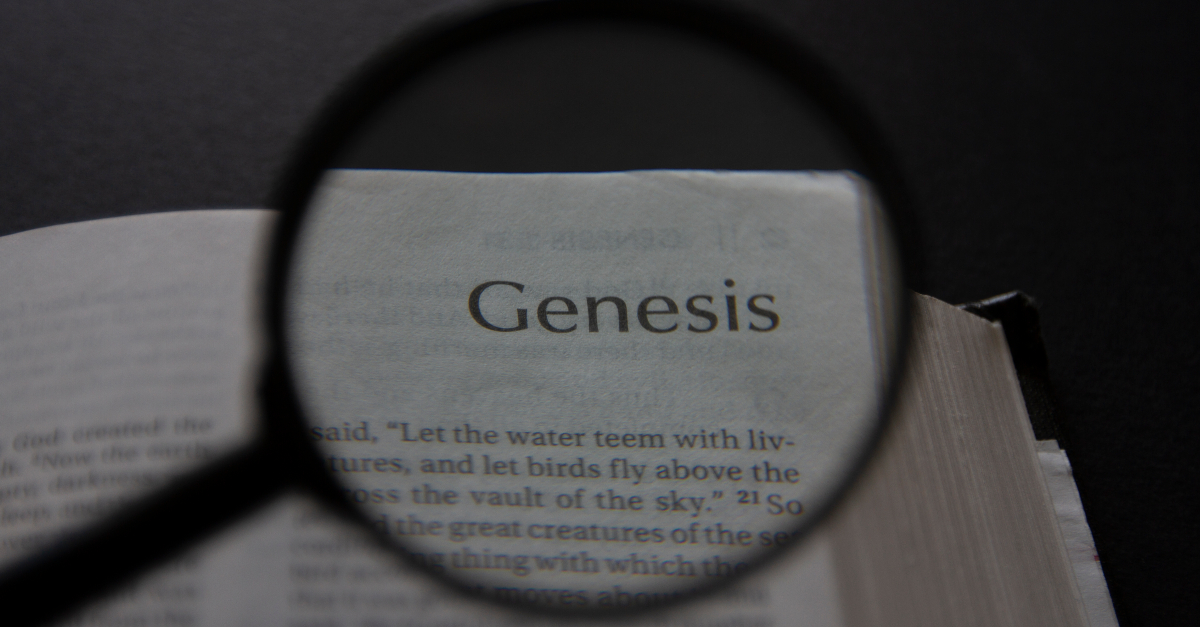What Is the Curse of Ham and What Can We Learn from It?

The Book of Genesis is replete with many of humanity's earliest experiences: The Creation, the Fall, the Flood. Some of these events would have good ramifications for years to come, others, just the opposite. One particular event readers discover in this book is the Curse of Ham, which follows the flood story. Not a popular topic in children’s Sunday school or weekly sermons, this tale has been shrouded in mystery, confusion, and even hate, at one time or another.
And yet, just like many of the other aforementioned Bible stories, there is much to learn from the characters, their actions, and how each of them relates to God. The same is true about the Curse of Ham, a sad story, but one that serves to edify the modern-day believer. First, we will examine the story, detailing the premise and characters. Once we have a better understanding of the tale, we can dive deeper and discuss 3 lessons we can learn from the Curse of Ham.
Who Was Ham?
According to the International Standard Bible Encyclopedia, Ham was "the youngest son of Noah, from whom sprang the western and southwestern nations known to the Hebrews. His name first occurs in Genesis 5:32, where, as in 6:10 and elsewhere, it occupies the second place. In Genesis 9:18 Ham is described as "the father of Canaan."
(Excerpted from "Ham" in the International Standard Bible Encyclopedia)
The entry also notes references to Egypt in Psalms 105:23, Psalm 105:17, and Psalm 106:22, where Egypt is called "the land of Ham." This verifies that Ham had many descendants who settled to create many nations, not just Canaan.
When Did the Curse of Ham Happen?
The Curse of Ham makes an appearance late in the ninth chapter of Genesis. After a massive flood has covered the Earth, eliminating most of life, Noah, his three sons, and all of their wives are the only people left alive. Aboard the ark with them, are all of the animals selected before the flood. Now that the ordeal is over, God makes a covenant with them. In this covenant, God gives them a commandment – be fruitful and multiply.
“God blessed Noah and his sons and said to them, ‘Be fruitful and multiply and fill the earth.’” (Genesis 9:1)
The name of each son is Shem, Ham, and Japheth. Ironically, one of the very people blessed by God is the one who is cursed, or rather the descendant of the son is cursed. However, God didn’t initiate the curse.
Continuing in the chapter, Noah and his family exit the ark to fulfill God’s commandment. Noah, being a gardening-type of man, began the process of repopulating the Earth by planting a vineyard (Genesis 9:20). Despite being chosen by God for such an important occurrence, Noah is human, and thus susceptible to sin. He became drunk one night, a result of how he used the vineyard, and was found naked in his tent. The person who found him was his son Ham.
Instead of supporting his father and covering his nakedness, Ham decided to go tell the other brothers, Shem and Japheth. They came as Ham instructed, but not to see their father’s low moment. Rather, they covered their father and did not witness his nakedness or add to his embarrassment.
Did the Curse of Ham Really Happen?
After recovering from his drunken stupor, we are introduced to the wrongly named Curse of Ham. This son was indeed guilty. However, Noah cursed not Ham, but Ham’s son.
“He said: Canaan is cursed. He will be the lowest of slaves to his brothers. He also said: Blessed be the Lord, the God of Shem; Let Canaan be Shem’s slave. Let God extend Japheth; let Japheth dwell in the tents of Shem; let Canaan be Shem’s slave.” (Genesis 9:25-27)
On a hierarchy, Noah is undoubtedly putting Canaan at the bottom. Noah doesn’t even mention Ham, so the only reason we know Ham is Canaan’s father is from an earlier verse (Genesis 9:22). A father’s mistake and a son’s exploitation led to a curse that would affect Canaan and his descendants.
We can conclude that the Curse of Ham did occur, but the more appropriate name would be the Curse of Canaan. Therein lies part of the confusion that would affect believers for many years to come.
Why There Is Confusion Between the Curse of Ham and the Curse of Canaan?
The name of the curse is not completely accurate, though some may find Curse of Ham fitting since he is the reason for it. That being said, other interpretations of the Scripture did become more problematic. During the sixteenth and seventeenth centuries, Christians living in a world of slavery needed biblical support for their ideology. The Curse of Ham was one frame of text they used to defend owning slaves.
Ham was said to be a forefather of people with dark skin or Africans. The other sons were the forefathers to other places. Thus, if Ham is cursed, then people from Africa must be cursed as well.
Modern theology seeks to correct this interpretation by positing first, that Ham was not cursed, that was Canaan. Secondly, the Canaanites were evil people, committing deeds fit enough for a curse.
Where the original interpretation and modern theology still miss the mark, is that all people with dark skin don’t originate in Africa. People living closer to the Equator, those residing in hotter climates, tend to have more melanin in their skin. This includes people living in Africa, central Asia, and Central America. All humans have the same number of melanocytes - cells that produce melanin. However, depending on where you live, your melanin content may be higher or lower. More melanin equals darker skin. The Curse of Ham was used to justify the enslavement of black people, but the term black people itself is not biblically sound.
Humans were divided into categories like black people and white people as part of the Great Chain of Being. This European concept was the political means of justifying slavery. Progress has been made in moving on from past misinterpretations, but there is still more to do – namely, ending Christians’ unintentional continuation of racism.
What Lessons Can We Learn from the Curse of Ham?
With the story in mind, its history, and an idea of how to move forward, we as modern-day believers can decipher what we ought to learn from this tragic tale. Here are 3 lessons we can learn from the curse:

Photo Credit: ©Sparrowstock
1. Honoring our Parents
However strange, Noah chose not to curse Ham, but Ham’s son, Canaan. Maybe there were details involving Canaan that did not appear in Scripture. Whatever the case, the writer provided information that he thought was pertinent. What we can read is that Ham sinned against his father. Where he could have played a supportive role, he chose to expose his father’s drunkenness.
This is a reminder to believers today that how we treat our parents is important. God gave us the commandment of honoring our parents in Exodus. While we may not always have the strongest or happiest relationship with our parents, exploiting them is a clear violation of what God ordained.
Ham did that and his son paid the cost. When we act out against our parents, we affect them, and can in turn affect others as well.
2. Sin Has Consequences
Ham sinned, Canaan felt the effects of the sin, and all of Canaan’s descendants did too. When we sin, sometimes we justify behavior reasoning that no one else is affected. Liars tell white lies, addicts only hurt themselves. These falsehoods we speak are untrue. Not only does sin hurt us, sin hurts God, other people, and those we may not even consider at the moment.
Ham’s impromptu action had generational consequences. Likewise, our sins have consequences, not all of which are readily felt or seen.
3. Accountability
Thanks to Jesus, we are no longer guilty of the sins of our fathers. While we may not have curses to fear, there are still sicknesses that run generationally. Parents addicted to alcohol or sex are more likely to have children who do the same. This means that we as a Christian community should do our part to hold ourselves and each other accountable. How we treat our parents matters. How we treat other people, and definitely how we treat God.
With accountability in place, we are less likely to experience the consequences of sin, but rather reap the blessings of virtue.
Conclusion
The Curse of Ham need no longer be a mystery to believers. The original misinterpretation is no doubt indicative of the times. Slavery was once common throughout the world, and still is in some places. Europeans (who then became Americans) did not invent slavery, but they were the first to abolish the practice. And with the abolition of slavery, came a renewed understanding of God’s Word.
Ultimately, we get to learn lessons from Scripture, and also from our forefathers - those preaching and comprehending theology before us. We get to use their knowledge, what they got right and wrong, to grow our own faith.
Photo Credit: ©GettyImages/Boonyachoat

Get in touch with him at aarondanthony.com and check out his debut short story anthology Honey Dreams on Amazon and Barnes and Noble.
Originally published November 03, 2021.







